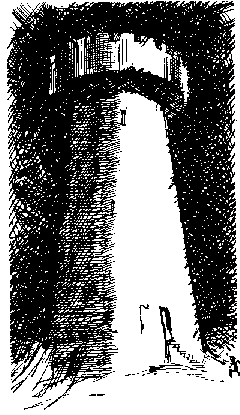Home
8. Conclusions
Sanctification cannot exist without justification, "for the heart of sanctification is the life which feeds on justification." — Berkouwer, op. cit., p. 93. And justification cannot exist without sanctification any more than light can exist without heat.
 Justification and sanctification must be seen as two parallel lines which cannot meet this side of glory. Justification looks back to the finished work of God in Jesus Christ and declares, "..... ye are complete" Col. 2:10; sanctification points us away to the return of Christ and says, "Not.., already perfect" Phil. 3:1 2. Justification pronounces us already pure (1 John 1:9); sanctification commands us to cleanse ourselves from all filthiness of the flesh and spirit (2 Cor. 7:1). Justification clothes us in Christ's victory (John 16:33); sanctification means pressing on to overcome (Rev. 3:21). Justification tells us that the battle is won (Is. 40:2); sanctification nerves us on to "fight the good fight of faith." 1 Tim. 6:12. Justification is resting in God's completed work (Matt. 11:28; Heb. 4:1-10); sanctification is pressing on toward the mark (Phil. 3:14). Here is the paradox of being and seeking to become; of being righteous by faith and sinful in nature; of "possessing all things," yet "having nothing." 2Cor. 6:10.
Justification and sanctification must be seen as two parallel lines which cannot meet this side of glory. Justification looks back to the finished work of God in Jesus Christ and declares, "..... ye are complete" Col. 2:10; sanctification points us away to the return of Christ and says, "Not.., already perfect" Phil. 3:1 2. Justification pronounces us already pure (1 John 1:9); sanctification commands us to cleanse ourselves from all filthiness of the flesh and spirit (2 Cor. 7:1). Justification clothes us in Christ's victory (John 16:33); sanctification means pressing on to overcome (Rev. 3:21). Justification tells us that the battle is won (Is. 40:2); sanctification nerves us on to "fight the good fight of faith." 1 Tim. 6:12. Justification is resting in God's completed work (Matt. 11:28; Heb. 4:1-10); sanctification is pressing on toward the mark (Phil. 3:14). Here is the paradox of being and seeking to become; of being righteous by faith and sinful in nature; of "possessing all things," yet "having nothing." 2Cor. 6:10.Why does and why must this paradox between justification and sanctification exist? It exists because of the separation of the two advents of Christ. At His first coming He redeemed us, perfected us, and gave us life and immortality (Heb. 9:12; 10:14;2Tim. 1:10). At His second coming He brings us these blessings to enjoy as empirical realities (Eph. 1:14; 1 John 3:3; Heb. 11 :40;Col. 3:4; 1 Cor. 15:50-56). The first advent was inaugurated eschatology- — for in Christ the last things have already taken place. The second advent is consummated eschatology — for then God will openly disclose what Christ has already done. The decisive victory has already taken place (first advent), and Christ is seated at God's right hand "expecting till His enemies be made His footstool." Heb. 10:13. Then that victory will be disclosed to the view of all. In "the times between" we must live by faith — knowing that we are righteous, yet still seeking to become righteous; believing that death has been destroyed, yet waiting for the sight of death to disappear; confessing that our sins have been put away, yet anxious that we feel sin no more.
It is from this separation of these two advents — Christ has come, and Christ will come — that we have the paradoxical relationship between justification and sanctification. And because we must relate the "now" and the "not yet," we must live in the tension of having and not having.
It is not in vain that the apostles frequently exhort us to faith and patient waiting in "the times between." Church history has proved that human nature wants to solve the paradox "here and now" instead of waiting for the "there and then." Antinomianism tries to destroy the tension by settling for justification and throwing out the absolute necessity of the inward process of sanctification. Perfectionism tries to destroy the tension by getting beyond forgiveness and establishing a relationship with God on the basis of sanctification. Either way, human nature wants to reduce the two parallel lines of justification and sanctification to one line this side of eternity. But this cannot be done without heresy. As a train needs twin tracks and must operate on both, so it is with a sound soteriology. And just as a train cannot jump one rail without jumping both, so it is with justification and sanctification.
If one protests that he is not comfortable living with this paradox and this tension, then we must remind him that he is not supposed to be. Life is not fulfilled in the historical process. Here we have no continuing city, but we seek one to come. We dwell in tents with Abraham, Isaac and Jacob, being heirs with them of the same promise. When faith becomes sight and grace is lost in glory, sanctification will be consummated, and forgiveness of sins will be no more. "Even so, come, Lord Jesus."
Intro | Legally | Psychologically | Effectively | Positionally | Examples | Need | Principles | Conclusion